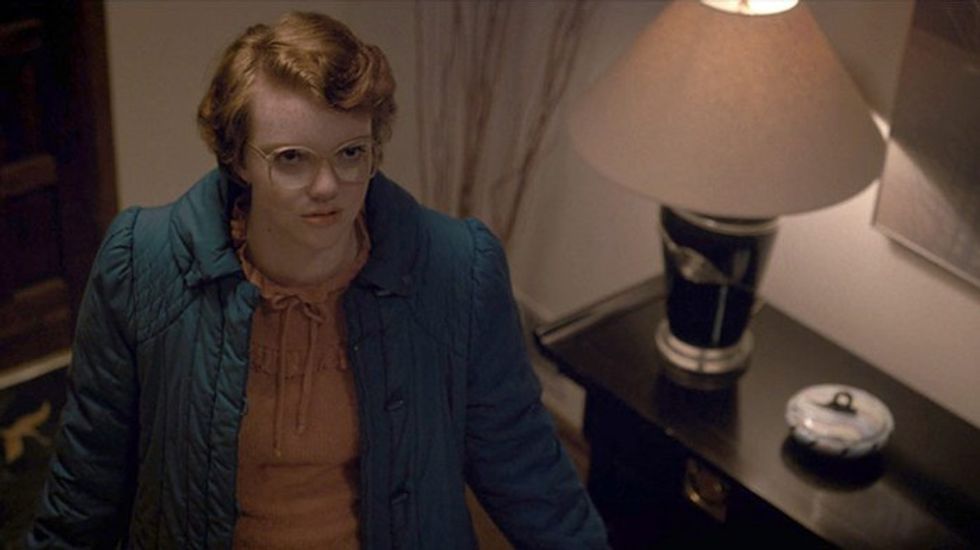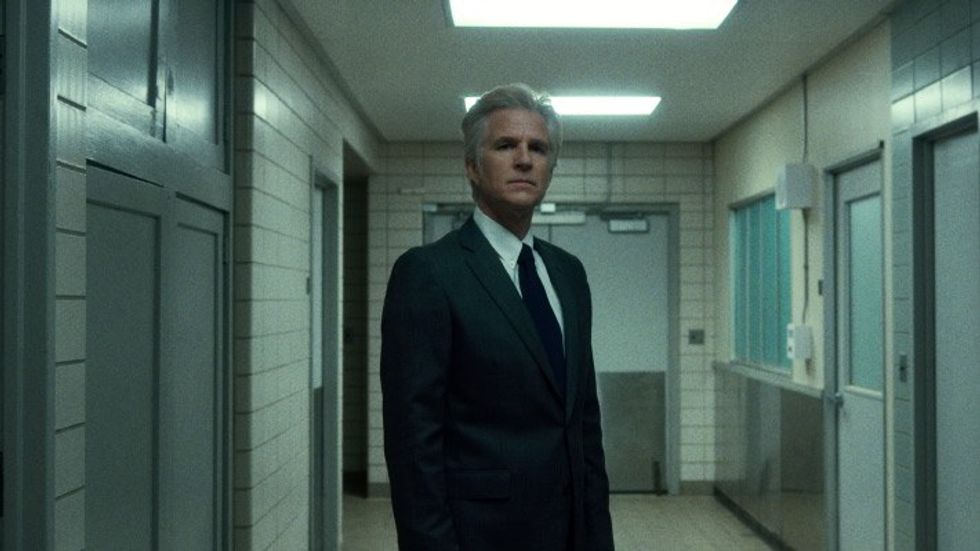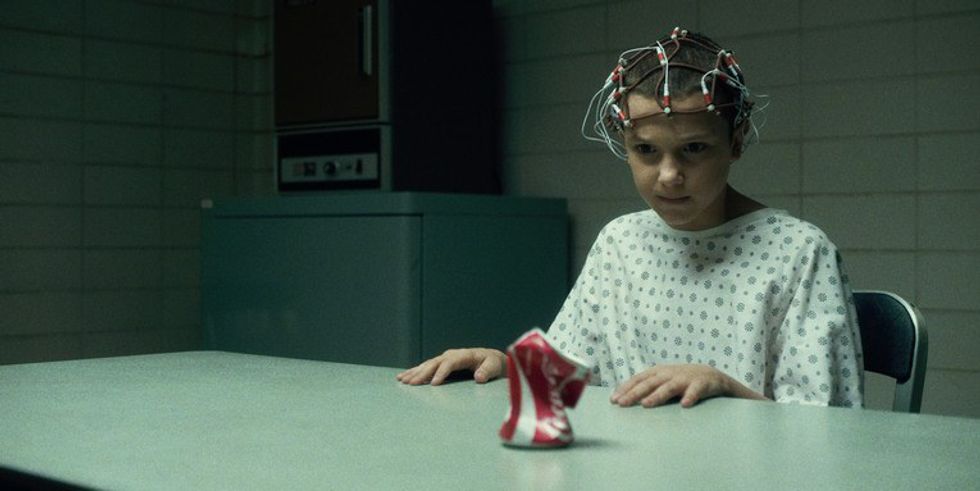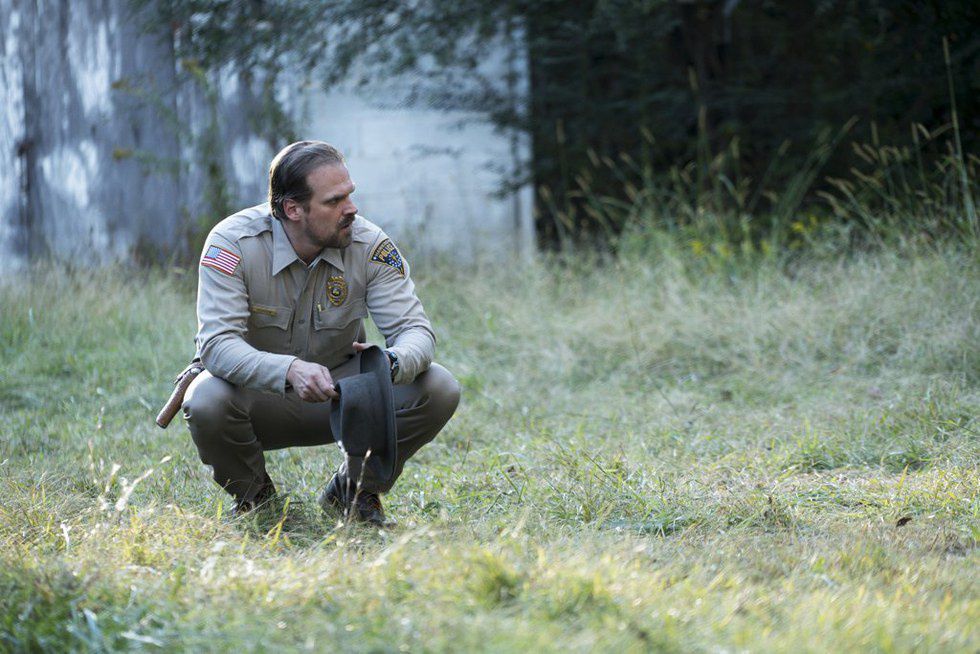A missing friend. A girl on the run. A desperate mother. A faceless, netherworld monster. These are the elements three young boys of Hawkins, Indiana must face up against in an 8-hour season of the newest Netflix original, Stranger Things. If you haven't watched the show by now, chances are you're going to end up watching it, even if you aren't entirely into the sci-fi/supernatural genre. Even though I thoroughly enjoyed the show, there are some things that I straight up do not get. So here are some points and theories on why the word-of-mouth hit is amazing and frustrating at the same time. WARNING: Spoilers Ahead!
1. Parallels, parallels, and more parallels
This show reminded me greatly of The Goonies and Super 8, with sprinklings of Supernatural and The X-Files (all which I HIGHLY recommend watching if you enjoyed Stranger Things). Being a fan of sci-fi/supernatural/thriller, I came into this binge thinking it was going to be revolutionary, considering all the hype that was behind it. I was wrong. The rat-pack casting of kids was directly parallel to the tag-along adventures of The Goonies and Super 8, both of which were also 80s centralized like Stranger Things. I mean, every character in Stranger Things could be perfectly matched with a character from The Goonies. Were this a Supernatural or X-Files idea with the "Upside-Down" and the Demogorgon, I can't help but realize it would've been a one episode plot. Of course, Sam and Dean have been hunting experts since their teen years, and Mulder and Scully are top-ranked FBI special agents, so the fact that these regular townspeople were able to overcome a supernatural being (with the help of another supernatural being) and come out mostly alive (RIP Barb, you gentle soul) is beyond miracle work.
2. Speaking of Barb, why did she die?
Think about it: why did Will have a greater chance of surviving in the Upside-Down against the Demogorgon than Barb did? He's a twelve year old kid who was taken into the Upside Down days before Barb had ended up there, before we even got to know Will. He should've been the show's "red shirt", considering he was a completely unexplored character. So why did Will survive the week? Was it because he had ways to communicate with his aptly cast Winona Ryder mother, driving him to stay alive and get back home? Was it because, according to Jonathan, he was a great hider? You might even argue that Will's knowledge of Dungeons & Dragons was what saved him, though upon research I found that the TV depiction of the Demogorgon is pretty different from the D&D version. In D&D, the Demogorgon is a powerful demon prince who can charm or drive enemies insane with it's gaze, depending on which head the enemy is looking at. Taking this into consideration, the only thing the Upside-Down Demogorgon and the D&D Demogorgon have in common is the tail that seems to have leper-like qualities which rot enemies at an exceedingly fast pace. It would also be incorrect to say that the Demogorgon has a certain intolerance for females since one of the men of Brenner's lab willingly went into the Upside-Down and was almost immediately killed. So why did Will survive? And why the hell was Barb's disappearance not made a bigger deal in a small town where missing people cases are seemingly nonexistent, ESPECIALLY when there were two in one week?! Barb, according to Nancy, was not the type to just run off, so why was it so easy for people to accept that she had run away from home?
3. The Hawkins Lab
There isn't hardly any fluff in this show, cutting right to the chase on nearly every subject matter that comes up in the show—a quality I really liked about it. But there was one big plot hole in the season that was never explained: what goes on in the Hawkins Lab that Dr. Brenner oversees? We get vague shards of information from Eleven's flashbacks and a few more pieces from Hopper and Joyce's investigations, but nothing more. There seems to be no driving force behind thinking it was a way to spy on the Soviet Union, because that only came up once. It could be a purely experimental lab, moving from one project to the next, trying to test how far the human mind can expand and produce energy under certain pressures of drugs and neurological devices. But if the rift to the Upside-Down was an accident, there's no way the Demogorgon was ever planned to be a weapon of war against the Soviets. It seems like a missed opportunity to delve deeper into the darkness of the top-secret lab, but then again, it might be a perfectly good ploy set on the viewers, leaving us just as sheltered as the characters in the show. If that's the case, then it was frustratingly well done.
4. Eleven
Since Eleven is a child of these experiments, her tattooed number suggests there were/are other subjects. If they had all died before her, there would be no reason to tattoo her since they would only have to focus on one subject at a time. So where are the other ten children before her? Are there any after her, too? There was no mention or sign of other kids existing in the facility, so why kill an escaped, but successful, test subject when seemingly all others failed? If El is the only one able to go into the isolation chamber and have the possibility of defeating the Demogorgon with her abilities, it makes no sense that they would want to kill her if it came down to it. And was El telling the truth about "being the monster" (friends don't lie, remember), or was her guilty conscience speaking out loud? The Demogorgon could have been a manifestation of her own fears while being subject to tests in the Hawkins Lab; maybe her manifestation began to exist in the parallel Upside-Down and became reality in our dimension when she created the gate, which would make sense since the Demogorgon just wouldn't freaking die no matter how much firepower was used against it, but it simply ashed-away and seemed to meld with Eleven when she killed it. Also, I am apprehensive to say that Eleven is Jane. There is an extremely low chance that a woman will miscarry in the third trimester, making Terry's thoughts about her child being alive and having special abilities very plausible. But only time will tell if she is Jane or not.
5. What is Hopper's deal?
Before I begin the rant of why Jim Hopper is extremely complex, I need to say this: I had the biggest crush on Hopper all season. David Harbour has been added to my growing list of celeb crushes (there are now 68, I can't help it). There's something about the way he looks like he's been through hell and back that's so hot and his voice and his presence is just so MANLY...okay okay I'm done, I promise, moving on.
Hop seems to be a pretty straightforward character: a former big-city cop turned small-town, chain-smoking, pill-popping chief. His involvement in the story is essential to the advancements of the other characters, but his own background becomes cloudier the more he is developed throughout the season. We find that he once had a wife and a daughter who was stricken with cancer at a young age. At first, I thought there could be a possibility that Eleven is actually Sarah. Hop might have given over the rights of his daughter's life to the government in order to save her by some miracle, jamming a wedge between Hop and his wife which would explain why he moved away. But I quickly debunked that in realizing Sarah and Eleven look nothing alike, and Hop accepted his daughter's death; a father who knew his kid was still alive would be searching nonstop for them, not passing out on the couch each night.
Next, why does Hop seem to be trained to a higher ranking than a city cop? Sure, all cops go through some basic training, but his hand-to-hand combat style of fighting may either be cinematic or an indication that there is more to Hop than we first thought. He seemed to easily breeze through the lab and find his way to the gate, had he previously been trained there and had his memory wiped? Was he a part of the LSD projects? There is a theory going around that Hop is actually Eleven's father, one I highly doubt is true. In order for this theory to work, Eleven would have to be Jane, and Terry and Hop would've had to have slept together before Terry was subject to the Hawkins Lab projects. When Joyce and Hop talk about seeing Terry Ives, he makes no indication (verbally or emotionally) that he knows her. Even though Terry's sister insists they would've gotten along well, I attribute this to the possibility that Terry was extremely inquisitive, like Hop.
Hopper makes a deal with the Hawkins Lab leaders, Dr. Brenner and that creepy blonde lady Agent Connie Frazier, that he has to keep his knowledge of Hawkins a secret. He willingly gave away the location of Eleven—a father wouldn't give up the safety of his own kid that fast, so "Jane Hopper" is false—in order to be able to go through the gate with Joyce to try and rescue Will. When Will is in the hospital, Hop takes off in a car with some Hawkins professionals. Why? Dr. Brenner and Agent Frazier were the only two who knew about the deal of Hopper keeping the secret, and even stated that they didn't need to worry about him because he was going into the Upside-Down, assuming he would be killed. Trends of top-secret government work in media typically follow the pattern that the superiors of facilities are the only ones that need to know the down-and-dirty of what goes on; their superiors don't need to know the "how" of a project, they just want to know the results. So there would be no reason for Brenner to tell anyone the deal they made with Hopper, and since both snowy-haired Brenner and ever career-morphing Agent Frazier were killed in episode 8, why is Hopper still subject to live under the rule of Hawkins Lab? There is a possibility that they wanted to debrief Hopper considering he and Joyce survived the Upside-Down, but why not debrief Joyce too?
And how does Jim Hopper know Eleven likes waffles?
A long read, I know, but these are the things that intrigued me to start the show at 4am and kept my butt glued to the couch all day. What are your thoughts on these theories? Do you agree or have any of your own? Let's talk about it!


























